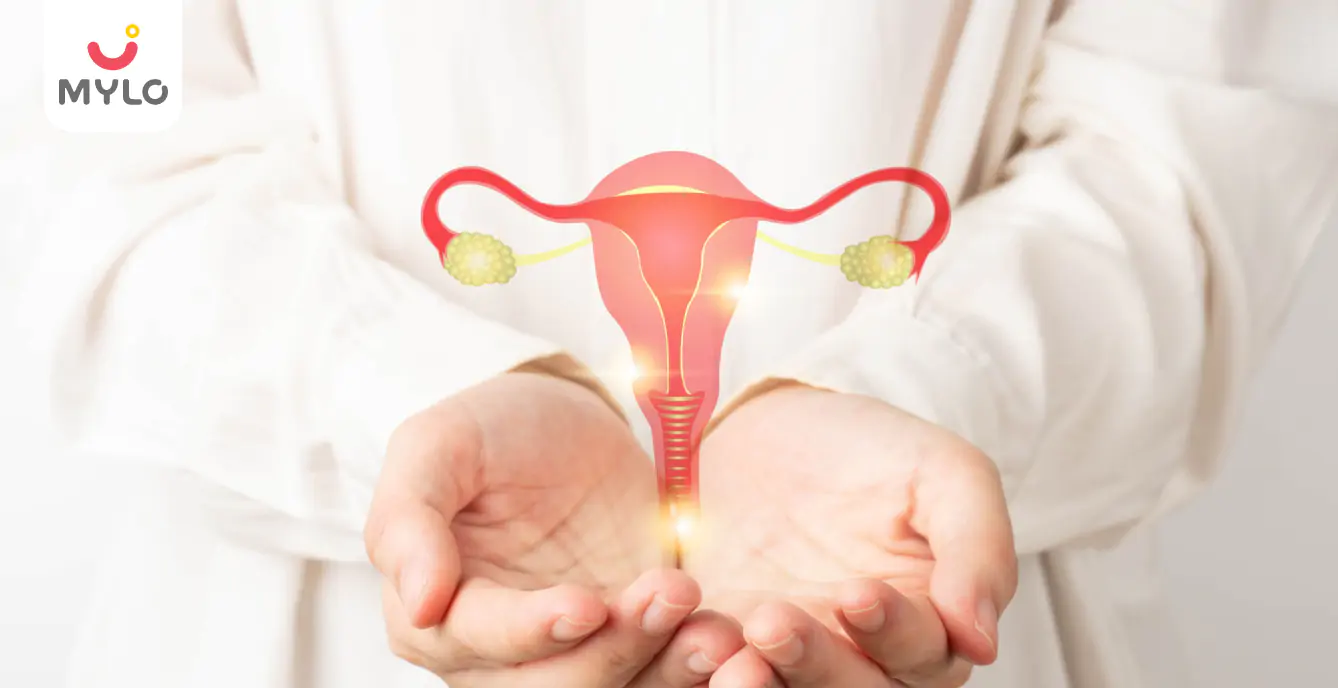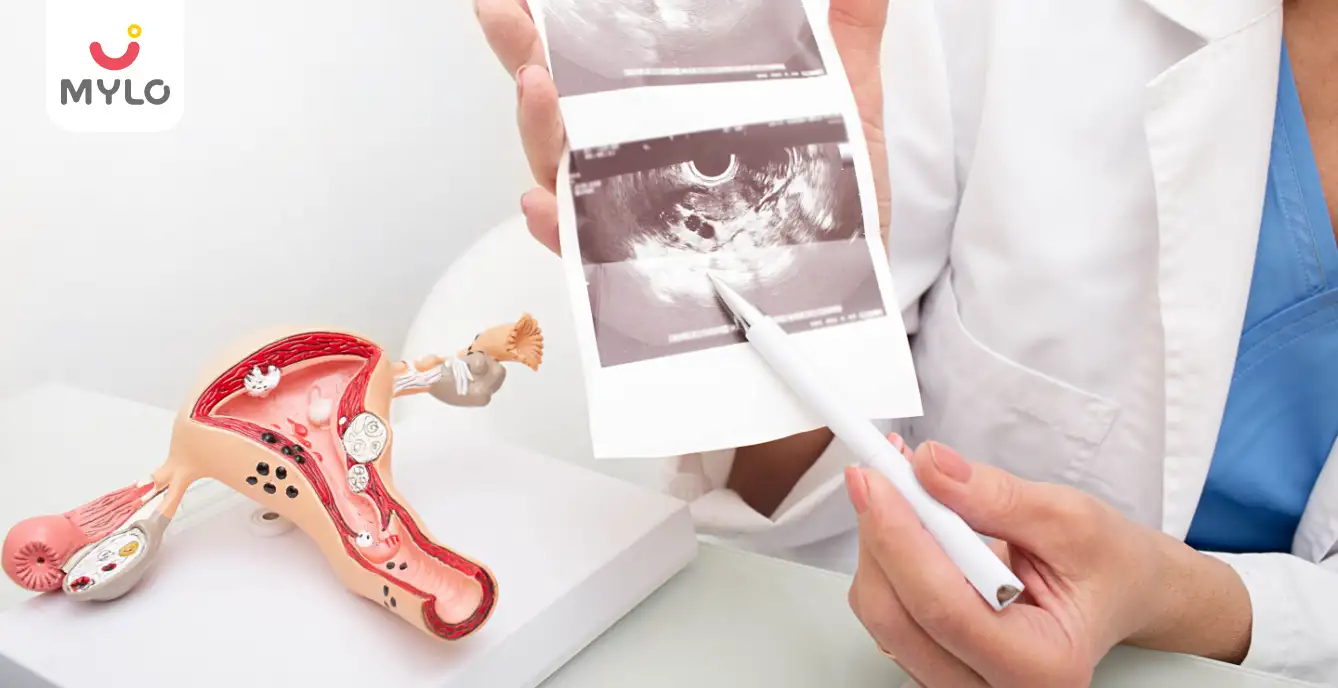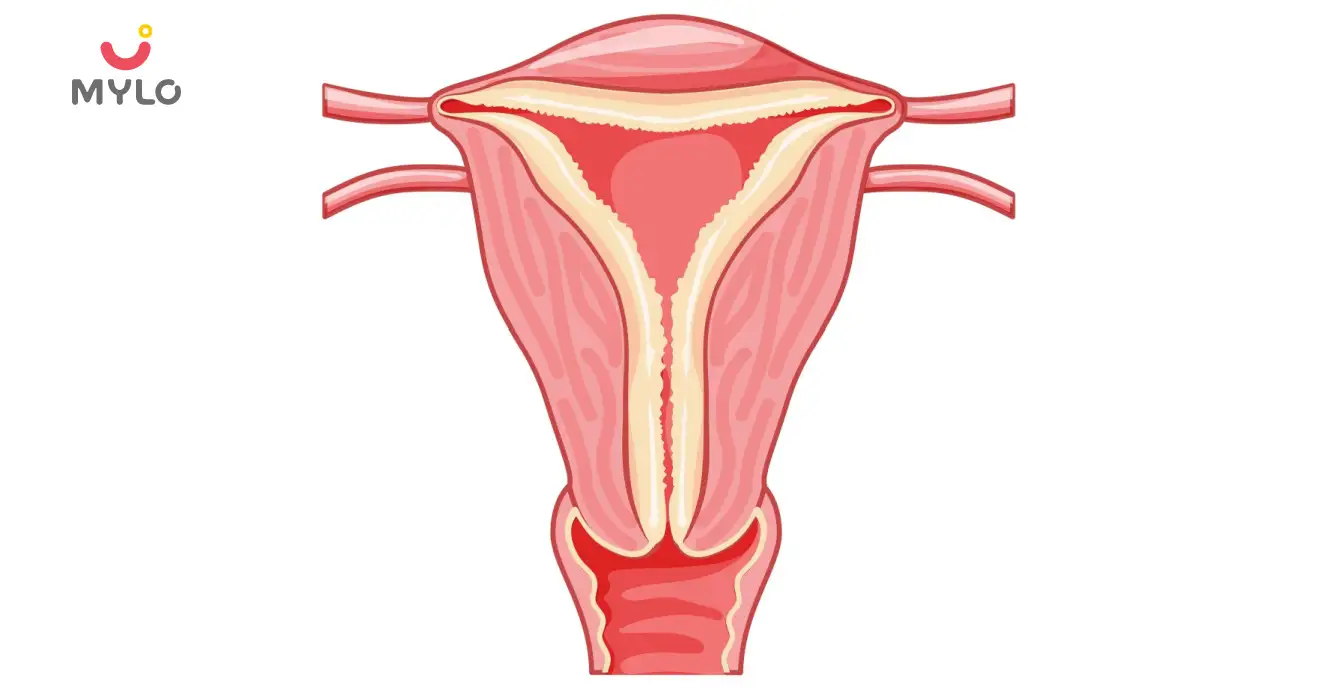Get MYLO APP
Install Mylo app Now and unlock new features
💰 Extra 20% OFF on 1st purchase
🥗 Get Diet Chart for your little one
📈 Track your baby’s growth
👩⚕️ Get daily tips

OR


Article Continues below advertisement
- Home

- Scans & Tests

- Anti Mullerian Hormone Test: The Key to Early Detection of Fertility Issues
In this Article
- What is AMH Test?
- Why is the AMH Test Important for Women's Health?
- Who Should Consider Taking the AMH Test?
- What are the Benefits of Early Detection of Fertility Issues?
- 1. Evaluating ovarian reserve
- 2. Assessing response to fertility treatment
- 3. Predicting menopause onset
- 4. Diagnosing polycystic ovary syndrome (PCOS)
- 5. Evaluating testicular function
- What is the AMH Test Procedure?
- How much does the AMH Test Cost?
- Anti Mullerian Hormone Test Interpretation and Results
- Alternative Fertility Tests and Procedures
- Final Thoughts
- References
Scans & Tests
Anti Mullerian Hormone Test: The Key to Early Detection of Fertility Issues
Updated on 12 September 2023



Medically Reviewed by
Dr. Shruti Tanwar
C-section & gynae problems - MBBS| MS (OBS & Gynae)
View Profile

Fertility issues can be a cause of concern for many women, especially those who are trying to conceive. In such cases, early detection of fertility issues can be a saving grace. One such test that has gained a lot of popularity in recent times is the Anti Mullerian Hormone test. The AMH test is a blood test that measures the level of AMH in a woman's blood and is a key to early detection of fertility issues.
In this article, we will understand what is AMH test, its importance, the AMH test procedure, and its interpretation and results.
What is AMH Test?
AMH is a hormone that is produced by the ovarian follicles. The AMH blood test measures the level of this hormone in a woman's blood. The level of AMH in a woman's blood is directly proportional to the number of eggs that she has. This means that if a woman has a high level of AMH in her blood, she is likely to have a higher number of eggs and vice versa.
Article continues below advertisment
Why is the AMH Test Important for Women's Health?
Anti Mullerian Hormone test is important for women's health because it is a key to early detection of fertility issues. If a woman has a low level of AMH in her blood, it could mean that she has a low ovarian reserve, which means that she has fewer eggs than usual. This could lead to difficulty in conceiving or even premature menopause.
On the other hand, if a woman has a high level of AMH in her blood, it could mean that she has a higher ovarian reserve, which means that she has more eggs than usual. This could lead to a higher chance of pregnancy and even multiple pregnancies.
You mat like: Symptoms of Low AMH to Watch Out For: A Health Alert for Women Trying to Conceive
Who Should Consider Taking the AMH Test?
The AMH test is recommended for women who are trying to conceive or who are planning to conceive in the near future. It is also recommended for women who are at risk of premature ovarian failure, such as those who have a family history of early menopause or who have had chemotherapy or radiation therapy. Women who are undergoing fertility treatment can also benefit from the AMH test, as it can help determine the best treatment options for them.
What are the Benefits of Early Detection of Fertility Issues?
Early detection of fertility issues can be beneficial in many ways. Here are five uses of AMH test for women:
Article continues below advertisment
1. Evaluating ovarian reserve
AMH levels in women correspond to the number of eggs remaining in their ovaries. Higher AMH levels indicate a higher ovarian reserve, while lower levels mean fewer eggs and a lower ovarian reserve.
2. Assessing response to fertility treatment
The AMH test can also help determine how well a woman is likely to respond to fertility drugs.
3. Predicting menopause onset
AMH levels decrease as women age and approach menopause. Measuring AMH levels can help predict when a woman will enter menopause.
4. Diagnosing polycystic ovary syndrome (PCOS)
Women with PCOS often have higher levels of AMH than those without the condition. Measuring AMH levels can help diagnose PCOS.
5. Evaluating testicular function
In males, AMH is produced by the testicles to promote sperm and organ development. Measuring AMH levels can help evaluate testicular function.
Article continues below advertisment
What is the AMH Test Procedure?
The AMH blood test is a simple blood test that can be done at any time during a woman's menstrual cycle. It does not require any special preparation or fasting. The blood sample is usually drawn from a vein in the arm and sent to a laboratory for analysis. The results of the test are usually available within a few days.
How much does the AMH Test Cost?
The cost of the AMH test can vary depending on the lab and location. The cost of an AMH test in India varies from ₹ 1080 to ₹ 2508 in different cities. Typically, an AMH level blood test is priced anywhere between ₹ 1000 to ₹ 2000. However, some insurance plans may cover the cost of the test, so it is important to check with the insurance provider before getting the test done.
Anti Mullerian Hormone Test Interpretation and Results
The interpretation of the AMH test results can vary depending on the lab and the reference range used. However, generally, a high level of AMH in a woman's blood indicates a higher ovarian reserve, while a low level of AMH indicates a lower ovarian reserve. The reference range for AMH levels can also vary depending on the age of the woman. For example, younger women tend to have higher AMH levels than older women.
It is also important to note that a high AMH level does not necessarily indicate a high fertility as women with PCOS also tend to have high AMH levels.
Alternative Fertility Tests and Procedures
While the AMH blood test is an important tool for early detection of fertility issues, there are also other tests and procedures that can be done to assess a woman's fertility. These include follicle-stimulating hormone (FSH) test, luteinizing hormone (LH) test, and ultrasound. In some cases, more invasive procedures such as laparoscopy or hysteroscopy may be required.
Article continues below advertisment
You may like : FSH LH Prolactin Test: What This Group of Tests Can Tell You About Your Fertility
Final Thoughts
The Anti Mullerian Hormone test is a valuable tool for early detection of fertility issues and can help women make informed decisions about their reproductive health. It is a simple blood test that can be done at any time during a woman's menstrual cycle. The results of the AMH test can help determine the best treatment options for women who are trying to conceive or who are planning to conceive in the near future.
References
1. Moolhuijsen LME, Visser JA. (2020). Anti-Müllerian Hormone and Ovarian Reserve: Update on Assessing Ovarian Function. J Clin Endocrinol Metab.
2. Shrikhande L, Shrikhande B, Shrikhande A. (2020). AMH and Its Clinical Implications. J Obstet Gynaecol India.
Article continues below advertisment





Medically Reviewed by
Dr. Shruti Tanwar
C-section & gynae problems - MBBS| MS (OBS & Gynae)
View Profile


Written by
Anupama Chadha
Anupama Chadha, born and raised in Delhi is a content writer who has written extensively for industries such as HR, Healthcare, Finance, Retail and Tech.
Read MoreGet baby's diet chart, and growth tips

Related Articles
Related Questions
Hello frnds..still no pain...doctor said head fix nhi hua hai..bt vagina me pain hai aur back pain bhi... anyone having same issues??
718 views
Kon kon c chije aisi hai jo pregnancy mei gas acidity jalan karti hain... Koi btayega plz bcz mujhe aksar khane ke baad hi samagh aata hai ki is chij se gas acidity jalan ho gyi hai. Please share your knowledge
727 views
I am 13 week pregnancy. Anyone having Storione-xt tablet. It better to have morning or night ???
730 views
Hlo to be moms....i hv a query...in my 9.5 wk i feel body joint pain like in ankle, knee, wrist, shoulder, toes....pain intensity is high...i cnt sleep....what should i do pls help....cn i cosult my doc.
733 views
Influenza and boostrix injection kisiko laga hai kya 8 month pregnancy me and q lagta hai ye plz reply me
743 views
RECENTLY PUBLISHED ARTICLES
our most recent articles

Medical Procedures
Benefits of HSG Test: The Secret to Boosting Your Chances of Getting Pregnant

Reproductive health
Deviry Tablet Uses: How to Maximize The Benefits for Your Reproductive Health

In Vitro Fertilization (IVF)
Endometrial Thickness for IVF: The Ultimate Guide to Successful IVF Outcomes

Fertility
Normal Endometrial Thickness: A Key Indicator of Female Fertility

Fibroids
Uterine Artery Embolization: A Non-Invasive Solution for Fibroids

Menstrual Cycle
Deviry 10mg for Menstrual Disorders: Is It the Right Choice for You
- Hyperprolactinemia: How High Prolactin Levels Can Affect Your Chances of Conception
- Myomectomy: A Comprehensive Guide to Uterine Fibroid Removal Surgery
- The Hormonal Dance: Understanding Which Hormones Regulate Menstrual Cycle
- 7 home remedies to cure cough and cold in infants
- How to Increase Endometrial Thickness: Your Guide to Science-Backed Tips
- Endometrial Scratching: The Ultimate Guide to Meaning, Benefits and Impact on Conception
- The Ultimate Guide to Buying a Baby Bath Tub for New Parents
- Strawberry in Pregnancy: Why Should This Fruit Be on Your Pregnancy Platter?
- Benefits of Wearing a Pregnancy Belt Before Delivery
- PCOS Treatment in Homeopathy: The Ultimate Guide to Natural Remedies
- Manjistha: Ayurveda's Best-Kept Secret for Health and Beauty
- Metformin for PCOS: How This Medication Can Help Regulate Hormonal Imbalances
- 5 Tips on How to Get Pregnant When You Are Fat
- Do Antibiotics Affect Fertility: Debunking Common Myths and Misconceptions


AWARDS AND RECOGNITION
Mylo wins Forbes D2C Disruptor award
Mylo wins The Economic Times Promising Brands 2022
AS SEEN IN
















At Mylo, we help young parents raise happy and healthy families with our innovative new-age solutions:
- Mylo Care: Effective and science-backed personal care and wellness solutions for a joyful you.
- Mylo Baby: Science-backed, gentle and effective personal care & hygiene range for your little one.
- Mylo Community: Trusted and empathetic community of 10mn+ parents and experts.
Product Categories
baby carrier | baby soap | baby wipes | stretch marks cream | baby cream | baby shampoo | baby massage oil | baby hair oil | stretch marks oil | baby body wash | baby powder | baby lotion | diaper rash cream | newborn diapers | teether | baby kajal | baby diapers | cloth diapers |







